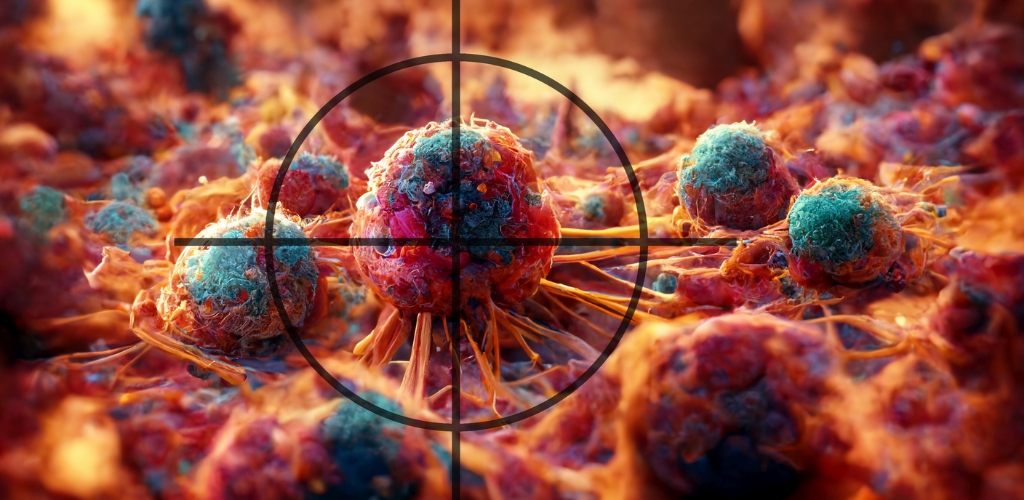Epigenetics, a burgeoning field in cancer research, delves into the heritable changes in gene expression patterns that occur without altering the underlying DNA sequence. These changes, influenced by environmental and genetic factors, play a pivotal role in cancer development and progression. Understanding the interplay between epigenetics and cancer holds immense promise for advancing personalised medicine and developing targeted therapies.
What is epigenetics and how does it relate to cancer ?
Epigenetics, a field at the intersection of genetics and environmental influences, explores heritable changes in gene expression patterns without altering the underlying DNA sequence. In the context of cancer, epigenetic changes play a pivotal role in driving tumorigenesis and influencing cancer progression. These changes involve DNA methylation, histone modifications, chromatin remodelling, microRNAs, and other components of chromatin, all of which contribute to the malignant phenotype by altering gene expression patterns.
Epigenetic changes are prevalent in all human cancers and are known to cooperate with genetic alterations to promote the cancer phenotype. The interplay between genetic mutations and epigenetic modifications is crucial in generating the malignant characteristics of cancer. Epigenetic therapies, aimed at reversing these changes, have become a standard of care for certain preleukemic disorders and forms of lymphoma, showcasing the potential of targeting epigenetic alterations in cancer treatment.
Role of DNA Methylation in Cancer
DNA methylation, a key epigenetic mechanism, has been extensively studied in the context of cancer. Alterations in DNA methylation patterns can distinguish cancer cells from normal cells and contribute to oncogenesis through various mechanisms. These include global hypomethylation of the cancer genome, focal hypermethylation at tumor suppressor gene promoters, and direct mutagenesis of methylated sequences. Understanding the role of DNA methylation in cancer provides insights into the molecular mechanisms driving tumorigenesis and offers potential targets for therapeutic interventions.
Epigenetic Therapy and Precision Medicin
Epigenetic therapy, which aims to reverse causal epigenetic aberrations in cancer cells, holds promise in restoring normal epigenetic patterns and improving treatment outcomes. The reversible nature of epigenetic changes has paved the way for personalised precision medicine approaches that utilise epigenetic biomarkers for diagnosis, prognosis, and targeted treatment interventions. Advances in epigenetic research have led to the development of epigenetic drugs that target specific epigenetic markers, offering new avenues for cancer therapy.
The Influence of Epigenetic Factors
Epigenetic factors, such as DNA methylation and histone modifications, exert a profound influence on gene expression patterns in cancer cells. These factors can either activate or silence genes involved in tumour growth, metastasis, and resistance to treatment. By analysing the epigenetic landscape of tumours, researchers can uncover critical insights into the molecular mechanisms driving cancer progression.
Epigenetic Clocks and Cancer Prognosis
Recent advancements in epigenetic research have led to the development of epigenetic clocks, predictive models that estimate an individual’s biological age based on epigenetic modifications. These clocks have shown remarkable accuracy in predicting cancer outcomes across various cancer types. By examining tumour-associated epigenetic factors, researchers can stratify patients into different risk groups and tailor treatment strategies accordingly.
Targeted Epigenetic Therapies
The identification of epigenetic factors associated with cancer progression has paved the way for the development of targeted epigenetic therapies. Histone acetyltransferases and chromatin remodelers, such as SWI/SNF proteins, have emerged as potential targets for epigenetics-based cancer therapy. By modulating these epigenetic regulators, researchers aim to disrupt cancer cell growth and enhance treatment efficacy.
Precision Medicine and Epigenetic Biomarkers
Epigenetic biomarkers, derived from the analysis of epigenetic factors in tumours, hold immense promise for guiding clinical decision-making in cancer care. These biomarkers can predict patient outcomes, response to treatment, and disease progression, enabling oncologists to deliver personalised and effective therapies. Integrating epigenetic information into cancer management strategies can revolutionise the way we diagnose and treat cancer.
Future Directions in Epigenetic Research
As research in epigenetics continues to evolve, future studies will focus on unraveling the complex interactions between genetic and epigenetic factors in cancer. By exploring the epigenetic landscape of different cancer types and subtypes, researchers aim to uncover novel therapeutic targets and biomarkers that can improve patient outcomes and quality of life.
Conclusion :
In conclusion, the intricate relationship between epigenetics and cancer opens new avenues for understanding tumorigenesis, predicting cancer outcomes, and developing targeted therapies. Epigenetic alterations, including DNA methylation, histone modifications, and chromatin remodelling, contribute significantly to cancer development and progression by dysregulating gene expression patterns. The emergence of epigenetic clocks and predictive models enables precise cancer prognosis, guiding personalised treatment strategies and improving patient outcomes. Epigenetic therapies, aimed at reversing causal epigenetic aberrations in cancer cells, hold promise in restoring normal epigenetic patterns and enhancing treatment efficacy. Moreover, epigenetic biomarkers derived from tumour-associated epigenetic factors offer valuable insights into patient response to treatment and disease progression, facilitating tailored therapeutic interventions. As research in epigenetics advances, integrating epigenetic information into clinical practice will revolutionise cancer care, paving the way for precision medicine approaches that optimise treatment efficacy and patient outcomes.
Citations:
[4] https://www.ncbi.nlm.nih.gov/pmc/articles/PMC8131862/
[5] https://www.freethink.com/health/new-ai-predicts-cancer-survival-using-epigenetics




